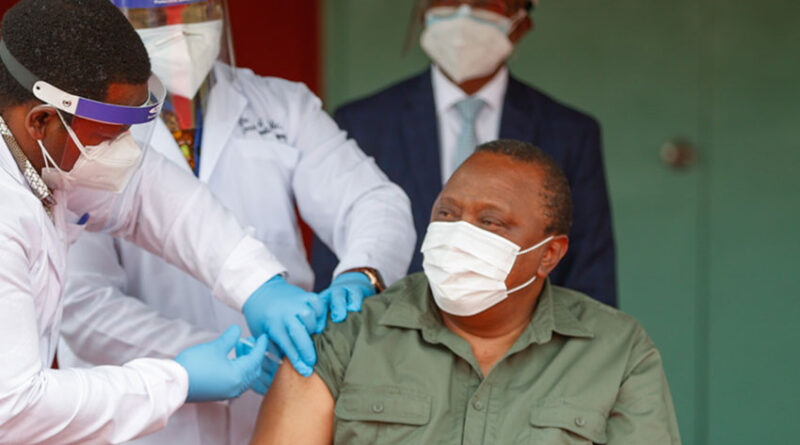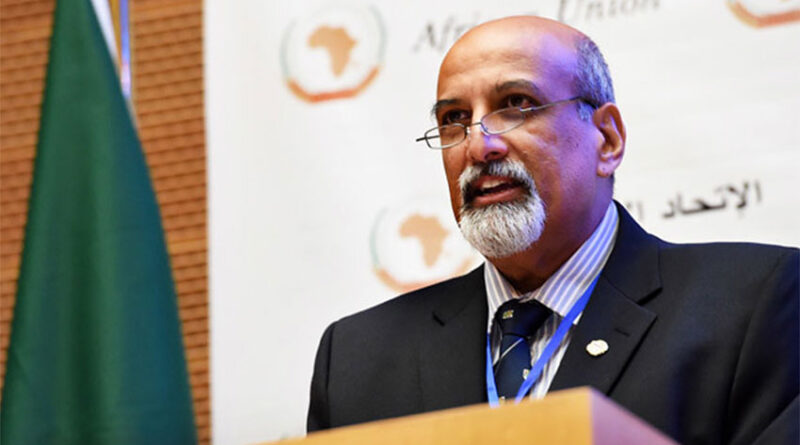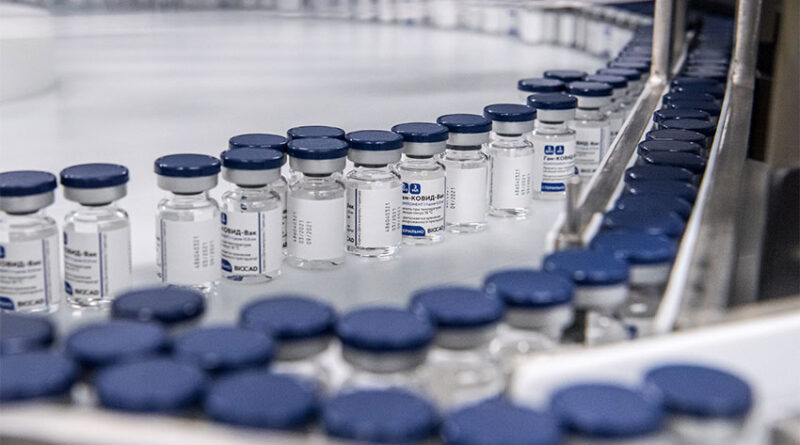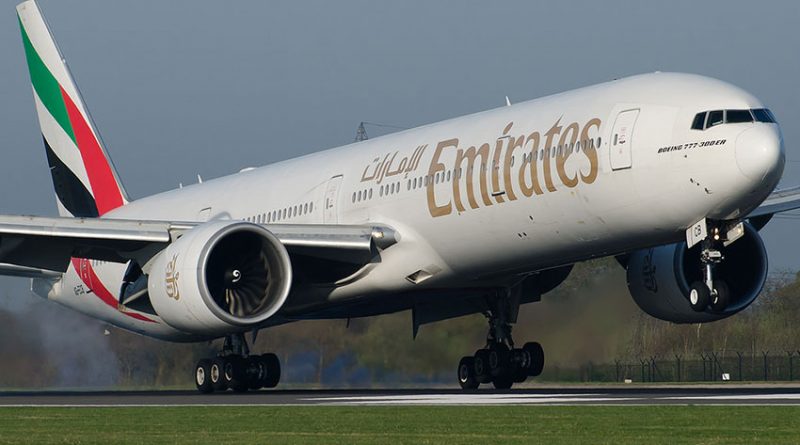KENYA’S President Uhuru Kenyatta restricted travel in the capital Nairobi and four surrounding counties on Friday as COVID-19 infections hit record levels in East Africa’s richest economy.
In a televised address, Kenyatta said a wave of new curbs including a stricter curfew and the closure of bars would hurt but were essential to fight the pandemic.
The new restrictions come a week before the Easter holiday when many Nairobi residents traditionally travel to visit family in other parts of the country.
“Whereas the foregoing measures will have a negative impact on the economy, these measures are temporary … the cost of not acting now will be far much greater,” the president said from State House, flanked by masked officials.
After his address, Kenyatta appeared on national TV getting his COVID-19 vaccination along with his wife, the acting Chief Justice, and other members of the cabinet.
Under the new curbs, authorities said Nairobi and the counties of Kajiado, Machakos, Kiambu, and Nakuru would be treated as one zone, and residents would be barred from crossing over to other areas.
“You can therefore move freely within the five counties. You will not however be able to leave and enter the One Zoned Area,” Nzioka Waita, the Chief of Staff at Kenyatta’s office, said on Twitter.
Public gatherings in the zone were suspended. In-person schooling, apart from for students taking exams, was suspended across the country.
The new steps will take effect at midnight on Friday and last until further notice, Kenyatta said. He also said meetings of his cabinet would not be held in person until further notice.
Kenya, heavily reliant on tourism, began COVID-19 vaccinations on March 5, with the government saying it hoped the campaign would mark the beginning of the end of the pandemic.
But three weeks later the president described soaring infections and the highest daily death rate since the pandemic began.
Kenya as of Thursday had reported 126,170 cases and 2,092 deaths in total. The president said the positive test rate hit 22% this week compared with January’s 2%. This month, an average of seven Kenyans have died each day from COVID-19, up from three a day in January and February.
THE chairman of South Africa’s Ministerial Advisory Committee on COVID-19 (MAC), Professor Salim Abdool Karim, stepped down yesterday, the health ministry said, following a meeting of the body to mark the first anniversary of its formation.
Professor Marian Jacobs, previously co-chair of the advisory body, will take up the role temporarily, the ministry said.
South Africa has been the hardest hit nation on the continent by COVID-19, with the highest number of confirmed cases at over 1.5 million, with more than 50,000 related deaths.
The rollout of vaccines has been slow, with only 207,000 people, mainly frontline health workers, inoculated so far. The government plans to vaccinate 40 million people, or two-thirds of the population, to achieve some level of herd immunity.
“Karim had expressed his desire to return to the important work he was doing, particularly in HIV research and innovation, before his appointment as Chair of the MAC,” the ministry said.
After pausing the roll-out of the AstraZeneca vaccine, South Africa started inoculating healthcare workers with Johnson & Johnson shots in a research study.
Source - Thomson Reuters Foundation
RUSSIAN developers of the Sputnik V vaccine against COVID-19 have applied for domestic approval of a single-dose “light” version, and that trials of it in Russia, the United Arab Emirates and Ghana have already begun.
The slimmed-down shot is not expected to be as effective as the original vaccine, said Arsen Kubataev, of the Russian Direct Investment Fund, the sovereign wealth fund marketing the vaccine abroad.
But the outlook for it is “optimistic”, he said.
RDIF has previously suggested the one-shot version of Sputnik V could be a “temporary” solution for countries with high infections rates that need to make the vaccine go further.
Sputnik Light has already been tested in smaller-scale, Phase I/II clinical trials, Kubataev said, adding that an application for approval of the vaccine based on results from these trials has now been filed.
“In parallel, we have already launched international clinical Phase III trials,” he said, that will test its efficacy.
The two-dose Sputnik V vaccine was shown to be 91.6% effective in fighting COVID-19 based on peer-reviewed late-stage trial results published in The Lancet international medical journal in early February.
Around 2,000 people have already received the shot, which consists of just one of the two doses, each based on a different adenovirus vector, that make up Sputnik V proper.
Overall, Kubataev said he expects 7,000 people to take part. Interim results on the efficacy of Sputnik Light can be expected in June.
Moscow has said its two-dose Sputnik V vaccine will remain the main version used in Russia. President Vladimir Putin said on Monday that 4.3 million Russians had received both shots of the vaccine and that he would get vaccinated on Tuesday.
Source - Thomson Reuters Foundation
NIGERIA suspended the airline Emirates from flying into or out of its territory last week after the carrier-imposed additional COVID-19 test requirements on passengers from the country, the aviation minister has announced.
Emirates said last week passenger flights to and from Nigeria had been suspended until further notice in line with government directives but did not give details.
Aviation minister Hadi Sirika told a news conference that the airline had demanded passengers from Nigeria undertake three COVID-19 tests within 24 hours, leading the government to suspend its operations, with the exemption of cargo and humanitarian flights.
“To make us go through three tests within 24 hours does not make sense. Since they insist, their operations remain suspended,” Sirika said.
Last month Nigeria lifted a suspension of Emirates airlines flights imposed after the carrier sought additional COVID-19 tests for passengers from Nigeria.
In addition to requiring a polymerase chain reaction (PCR) test before flying from Nigeria, the airline added an extra requirement of having a rapid test four hours before departure.
Dutch airline KLM commenced flights in and out of Nigeria this month, the minister said.
Source - Thomson Reuters Foundation




